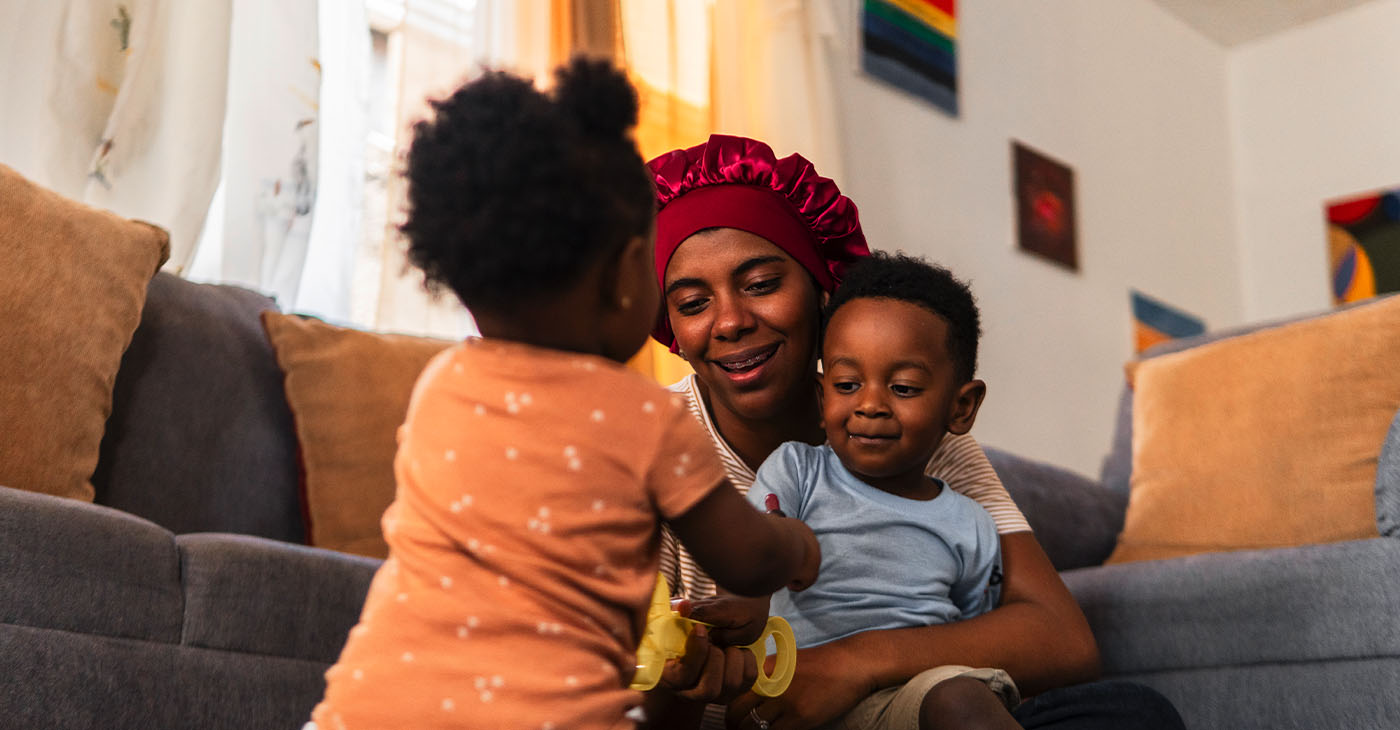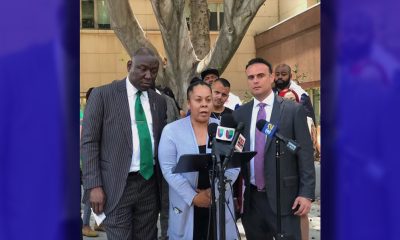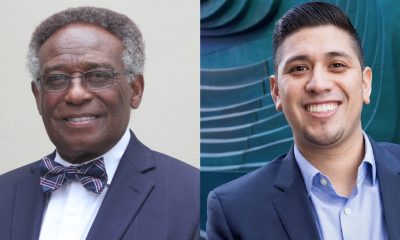#NNPA BlackPress
Community Groups in ‘The Bay’ Will Help Get the Word Out About Emergency Planning

California is prone to disasters, natural and otherwise. They range from devastating annual wildfires to earthquakes, droughts, mudslides and extreme heatwaves. A deteriorated electrical power infrastructure has also been the culprit in sparking some of those wildfires, costing tens of billions of dollars in damage and causing rolling blackouts, electrocutions, and private and public property damage resulting from power surges.
On top of that, there is a sinking coastline that exposes somewhere between four and eight million people living in low-elevation areas around San Francisco, Los Angeles, San Diego and other coastal cities to disastrous flooding from a threatening Pacific with rising Relative Sea Levels.
In light of this menacing reality, two non-profits — one in San Francisco and the other in Alameda County — in partnership with numerous grassroots community-based organizations (CBOs) on both sides of the Bay will help get the word out to northern Californians living in those areas about being prepared if disaster strikes.
“September is National Preparedness Month, and we are geared to do things differently this year – particularly because of everything that’s happening in our state – COVID 19, the wildfires, polluted air,” said Lewis Kraus, co-director of the Center on Disability at the Public Health Institute, based in Oakland.
The Center on Disability is responsible for coordinating the public awareness campaign across Alameda County, where the second-largest concentration of African Americans in California live (next to Los Angeles county). Black Californians make up about 12.5 percent of the county’s population of more than 1.5 million people.
“We work with the community-based organizations and faith-based organizations that have experience working directly with different communities — Blacks, Asians, Latinos, people with disabilities, elders and others,” he said.
The work Kraus’s organization is doing is part of a $50 million coordinated statewide emergency preparedness informational campaign titled Listos California. Gov. Gavin Newsom and the state legislature say their intention with the program is to “ready our most vulnerable populations for disasters.”
The program is administered by the Governor’s Office of Emergency Services, also called CalOES. That agency has awarded $20 million to CBOs in 24 counties across the state to support education and the creation of customized disaster preparedness programs, according to a press release from the governor’s office.
The money will also support animal management preparedness, according to CalOES.
“It is critical that Californians are prepared. Community preparedness and peer-to-peer networks can literally save lives and help our first responders during and after a disaster,” said Mark Ghilarducci, Director of CalOES.
Kraus says the COVID-19 pandemic has made outreach difficult, but it has forced the grassroots groups to be more creative, especially in their efforts to reach people who may have limited or no internet access.
“The intent of the program is not just to give people information but to engage them with it. We will do face-to-face interactions when it is possible. We will show up with a table at in-person events, and some of the churches have been going out to food distribution sites, masks and gloves on, to talk to people, social distancing, of course, and they include literature with their food,” he said. “We have transitioned a lot of things to online. We put our brochure online. We also have a fillable pdf for creating your own emergency plan.
Across the Bay in San Francisco, where the African American population is 6%, another organization, SF CARD is coordinating the outreach there, prioritizing vulnerable groups, including people who are unhoused.
“SF CARD is, at heart, a collaborating agency. We hold subject matter expertise in disaster preparedness, response and recovery, but we let the embedded organizations lead the way on how to best engage their communities in learning about preparedness,” says Heather Lee, program manager at SF Card. Even if the information is on a flyer that is mailed out — it is coming from a cornerstone of that family’s support network. The trust of the organization, the one that provides a meal each week, the one that helps them navigate the world with their disabled child, is going to add the weight of importance to this work than just another billboard in the urban landscape.
Lee says everybody in California should take steps to get prepared.
“Meet one neighbor. One neighbor that you can agree to be there for in an emergency and can be there for you. In disaster work, we are always saying, the worst time to exchange business cards is during a disaster – but it happens,” she said. “And the truth is – even on the best of days, we only answer the phone when we recognize the caller ID. That’s tenfold true during a crisis.”
#NNPA BlackPress
LIHEAP Funds Released After Weeks of Delay as States and the District Rush to Protect Households from the Cold
BLACKPRESSUSA NEWSWIRE — The federal government has released $3.6 billion in home heating assistance after a delay that left states preparing for the start of winter without the program’s annual funding.

By Stacy M. Brown
Black Press USA Senior National Correspondent
The federal government has released $3.6 billion in home heating assistance after a delay that left states preparing for the start of winter without the program’s annual funding. The Low-Income Home Energy Assistance Program, known as LIHEAP, helps eligible households pay heating and cooling bills. The release follows a shutdown that stretched 43 days and pushed agencies across the country to warn families of possible disruptions.
State officials in Minnesota, Kansas, New York, and Pennsylvania had already issued alerts that the delay could slow the processing of applications or force families to wait until December for help. In Pennsylvania, more than 300,000 households depend on the program each year. Minnesota officials noted that older adults, young children, and people with disabilities face the highest risk as temperatures fall.
The delay also raised concerns among advocates who track household debt tied to rising utility costs. National Energy Assistance Directors Association Executive Director Mark Wolfe said the funds were “essential and long overdue” and added that high arrearages and increased energy prices have strained families seeking help.
Some states faced additional pressure when other services were affected by the shutdown. According to data reviewed by national energy advocates, roughly 68 percent of LIHEAP households also receive nutrition assistance, and the freeze in multiple programs increased the financial burden on low-income residents. Wolfe said families were placed in “an even more precarious situation than usual” as the shutdown stretched into November.
In Maryland, lawmakers urged the Trump administration to release funds after the state recorded its first cold-related death of the season. The Maryland Department of Health reported that a man in his 30s was found outdoors in Frederick County when temperatures dropped. Last winter, the state documented 75 cold-related deaths, the highest number in five years. Rep Kweisi Mfume joined more than 100 House members calling for immediate federal action and said LIHEAP “is not a luxury” for the 100,000 Maryland households that rely on it. He added that seniors and veterans would be placed at risk if the program remained stalled.
Maryland Gov. Wes Moore used $10.1 million in state funds to keep benefits moving, but noted that states cannot routinely replace federal dollars. His administration said families that rely on medical equipment requiring electricity are particularly vulnerable.
The District of Columbia has already mapped out its FY26 LIHEAP structure in documents filed with the federal government. The District’s plan shows that heating assistance, cooling assistance, weatherization, and year-round crisis assistance operate from October 1 through September 30. The District allocates 50 percent of its LIHEAP funds to heating assistance, 10 percent to cooling, 13 percent to year-round crisis assistance, 15 percent to weatherization, and 10 percent to administrative costs. Two percent is used for services that help residents reduce energy needs, including education on reading utility bills and identifying energy waste.
The District’s plan lists a minimum LIHEAP benefit of $200 and a maximum of $1,800 for both heating and cooling assistance. Crisis benefits are provided separately and may reach up to $500 when needed to resolve an emergency. The plan states that a household is considered in crisis if it has been disconnected from energy service, if heating oil is at 5 percent or less of capacity, or if the household has at least $200 owed after the regular benefit is applied.
The District’s filing notes that LIHEAP staff conduct outreach through community meetings, senior housing sites, Advisory Neighborhood Commissions, social media, posters, and mass mailings. The plan confirms that LIHEAP applicants can apply in person, by mail, by email, or through a mobile-friendly online application and that physically disabled residents may request in-home visits.
As agencies nationwide begin distributing the newly released funds, states continue working through large volumes of applications. Wolfe said LIHEAP administrators “have been notified that the award letters have gone out and the states can begin to draw down the funds.”
#NNPA BlackPress
Seven Steps to Help Your Child Build Meaningful Connections
BLACKPRESSUSA NEWSWIRE — Swinging side by side with a friend on the playground. Sharing chalk over bright, colorful sidewalk drawings. Hiding behind a tree during a spirited game of hide-and-seek. These simple moments between children may seem small, but they matter more than we think

By Niyoka McCoy, Ed.D., Chief Learning Officer, Stride/K12
Swinging side by side with a friend on the playground. Sharing chalk over bright, colorful sidewalk drawings. Hiding behind a tree during a spirited game of hide-and-seek. These simple moments between children may seem small, but they matter more than we think: They lay the foundation for some of life’s most important skills.
Through everyday play, young children begin learning essential social and emotional skills like sharing, resolving conflicts, showing empathy, and managing their emotions. These social skills help shape emotional growth and set kids up for long-term success. Socialization in early childhood isn’t just a “nice-to-have”—it’s essential for development.
Yet today, many young children who haven’t yet started school aren’t getting enough consistent, meaningful interaction with peers. Research shows that there’s a decline in active free play and peer socialization when compared to previous generations.
There are many reasons for this. Children who are home with a parent during the day may spend most of their time with adults, limiting opportunities for peer play. Those in daycare or preschool may have restricted free play, and large classrooms can reduce supervision and social coaching. Some children live in rural areas, are homebound due to illness, have full schedules, or rely on screens to fill their playtime. And for some families, finding other families with young children to connect with isn’t easy.
While these challenges can feel significant, opportunities for connection still exist in every community. Families can take simple steps to help children build friendships, create a sense of belonging, and strengthen social skills. Here are some ideas to get started:
- Storytime sessions at libraries or local bookstores
- Community offerings such as parent-child workshops, art, music, gymnastics, swimming, or sports programs
- Weekly events at children’s museums, which may include art projects, music workshops, or science experiments
- Outdoor exploration, where kids can play with peers
- Local parenting groups that organize playdates and group activities
- Volunteer opportunities where children can participate, such as pet adoption events or packing meals at a food bank
- Classes for kids at local businesses, including hardware, grocery, or craft stores
Some of these community activities are free or low-cost and give kids the chance to build friendships and practice social skills. Parents can also model positive social behavior by interacting with other parents and encouraging their children to play with their peers.
These may seem like small moments of connection, but they can have a powerful impact. Every time your child shares a toy, plays make-believe with peers, or races a friend down the slide, they’re not just playing—they’re learning the skills that build confidence, empathy, and lasting friendships. And it’s good for you, too. Creating intentional opportunities for play also helps you strengthen your own network of parents who can support one another as your children grow together.
#NNPA BlackPress
Seven Steps to Help Your Child Build Meaningful Connections
BLACKPRESSUSA NEWSWIRE — Swinging side by side with a friend on the playground. Sharing chalk over bright, colorful sidewalk drawings. Hiding behind a tree during a spirited game of hide-and-seek. These simple moments between children may seem small, but they matter more than we think

By Niyoka McCoy, Ed.D., Chief Learning Officer, Stride/K12
Swinging side by side with a friend on the playground. Sharing chalk over bright, colorful sidewalk drawings. Hiding behind a tree during a spirited game of hide-and-seek. These simple moments between children may seem small, but they matter more than we think: They lay the foundation for some of life’s most important skills.
Through everyday play, young children begin learning essential social and emotional skills like sharing, resolving conflicts, showing empathy, and managing their emotions. These social skills help shape emotional growth and set kids up for long-term success. Socialization in early childhood isn’t just a “nice-to-have”—it’s essential for development.
Yet today, many young children who haven’t yet started school aren’t getting enough consistent, meaningful interaction with peers. Research shows that there’s a decline in active free play and peer socialization when compared to previous generations.
There are many reasons for this. Children who are home with a parent during the day may spend most of their time with adults, limiting opportunities for peer play. Those in daycare or preschool may have restricted free play, and large classrooms can reduce supervision and social coaching. Some children live in rural areas, are homebound due to illness, have full schedules, or rely on screens to fill their playtime. And for some families, finding other families with young children to connect with isn’t easy.
While these challenges can feel significant, opportunities for connection still exist in every community. Families can take simple steps to help children build friendships, create a sense of belonging, and strengthen social skills. Here are some ideas to get started:
- Storytime sessions at libraries or local bookstores
- Community offerings such as parent-child workshops, art, music, gymnastics, swimming, or sports programs
- Weekly events at children’s museums, which may include art projects, music workshops, or science experiments
- Outdoor exploration, where kids can play with peers
- Local parenting groups that organize playdates and group activities
- Volunteer opportunities where children can participate, such as pet adoption events or packing meals at a food bank
- Classes for kids at local businesses, including hardware, grocery, or craft stores
Some of these community activities are free or low-cost and give kids the chance to build friendships and practice social skills. Parents can also model positive social behavior by interacting with other parents and encouraging their children to play with their peers.
These may seem like small moments of connection, but they can have a powerful impact. Every time your child shares a toy, plays make-believe with peers, or races a friend down the slide, they’re not just playing—they’re learning the skills that build confidence, empathy, and lasting friendships. And it’s good for you, too. Creating intentional opportunities for play also helps you strengthen your own network of parents who can support one another as your children grow together.
-

 Activism3 weeks ago
Activism3 weeks agoOakland Post: Week of November 12 – 18, 2025
-

 Activism4 weeks ago
Activism4 weeks agoOakland Post: Week of November 5 – 11, 2025
-

 Activism2 weeks ago
Activism2 weeks agoIN MEMORIAM: William ‘Bill’ Patterson, 94
-

 Activism3 weeks ago
Activism3 weeks agoHow Charles R. Drew University Navigated More Than $20 Million in Fed Cuts – Still Prioritizing Students and Community Health
-

 #NNPA BlackPress3 weeks ago
#NNPA BlackPress3 weeks agoThe Perfumed Hand of Hypocrisy: Trump Hosted Former Terror Suspect While America Condemns a Muslim Mayor
-

 Bay Area3 weeks ago
Bay Area3 weeks agoNo Justice in the Justice System
-

 #NNPA BlackPress3 weeks ago
#NNPA BlackPress3 weeks agoProtecting Pedophiles: The GOP’s Warped Crusade Against Its Own Lies
-

 #NNPA BlackPress2 weeks ago
#NNPA BlackPress2 weeks agoTrump’s Death Threat Rhetoric Sends Nation into Crisis



























































